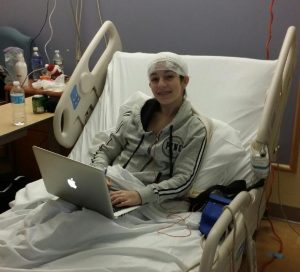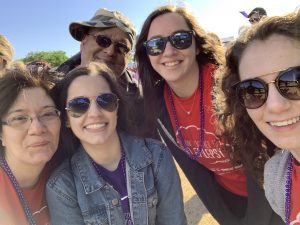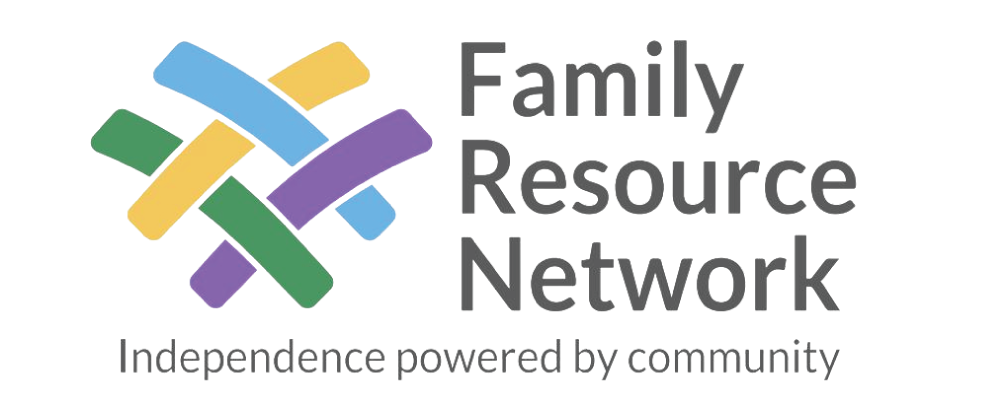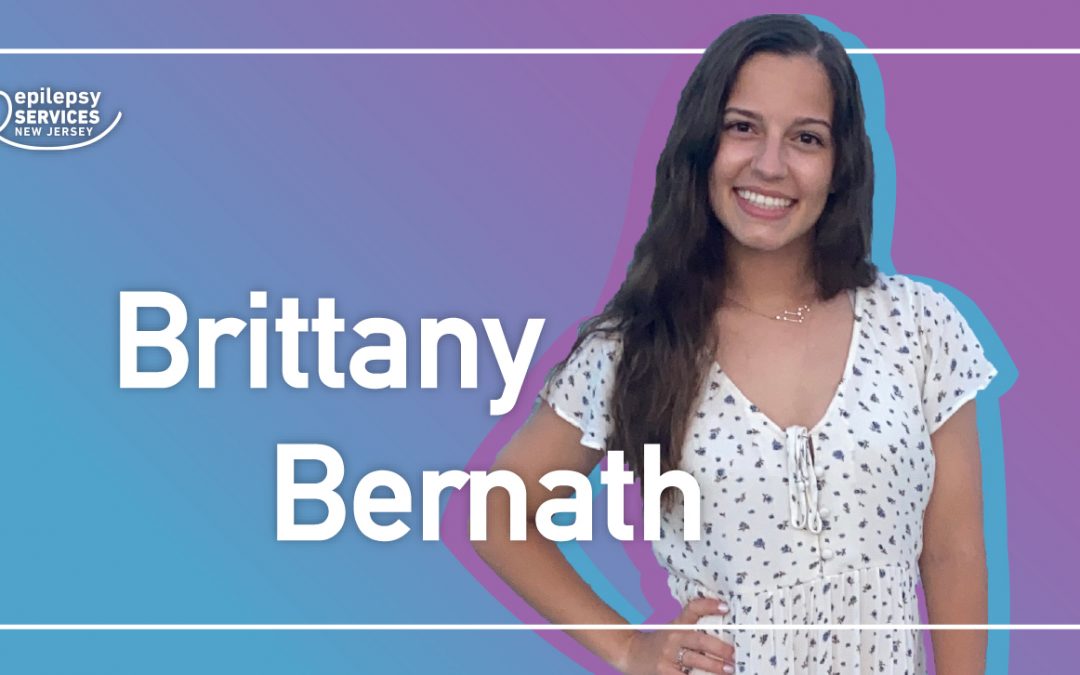On January 25, 2014, I woke up to my family standing around me, looking more concerned than I had ever seen them. Realizing that I was in a hospital bed, I was utterly confused. I had no idea what happened, and had no recollection of the hours prior. All I knew was that I had an excruciating headache, and that I felt like I could sleep for days. When a doctor arrived to the hospital room, I was informed that I had experienced a grand mal seizure. Little did I know that this would change my life forever.
 After going through a series of tests, from MRI’s to EEG’s, I was diagnosed with Juvenile Myoclonic Epilepsy (JME). JME is known as the most common form of generalized epilepsy, with seizures typically occurring after one wakes up. It is triggered by a few different things, but I found out that my particular seizure triggers were stress, lack of sleep, missing medications, sickness, and flashing lights. Before I was diagnosed, I had little to no knowledge about epilepsy. I had never taken the time to learn about it, since I never thought that it would happen to me. However, I quickly had to adapt to this new life that I had been given.
After going through a series of tests, from MRI’s to EEG’s, I was diagnosed with Juvenile Myoclonic Epilepsy (JME). JME is known as the most common form of generalized epilepsy, with seizures typically occurring after one wakes up. It is triggered by a few different things, but I found out that my particular seizure triggers were stress, lack of sleep, missing medications, sickness, and flashing lights. Before I was diagnosed, I had little to no knowledge about epilepsy. I had never taken the time to learn about it, since I never thought that it would happen to me. However, I quickly had to adapt to this new life that I had been given.
Following that grand mal seizure, my epilepsy started presenting itself in other ways. I began to realize that whenever I was stressed out or extra tired, I would feel “out of it” or confused, a sign that I was pushing myself too hard. Being a freshman in high school at the time, taking a break from new activities and new friends seemed impossible. Trying to navigate high school and epilepsy at the same time became a challenge. I spent a lot of time learning my brain’s limits, so that I could continue to participate in extracurricular activities, while keeping stress low. 
When senior year of high school came around, it was time to apply to colleges. However, applying to colleges meant that I would have to think about being on my own, and dealing with the twists and turns of epilepsy by myself. Distance from home became an important factor in choosing which college to go to, in case of an emergency. I wanted nothing more than to experience all that college had to offer, but the thought of triggering a seizure through late homework nights and busy schedules was terrifying. After careful consideration, I decided that the best option for me was a small school in Philadelphia, about an hour and a half from my home in New Jersey.
 Before moving into college, I made sure to have a conversation with my roommates about my epilepsy. Although I was nervous that they would be more afraid than supportive, I knew that I would feel more comfortable living around people who were aware of what to do in the event of a seizure. They were extremely understanding, and because of that, I gained an amazing support system in college. Between my friends and family at home and my new friends at school, I always had people around me who were making sure that I was feeling OK and staying on top of my medications.
Before moving into college, I made sure to have a conversation with my roommates about my epilepsy. Although I was nervous that they would be more afraid than supportive, I knew that I would feel more comfortable living around people who were aware of what to do in the event of a seizure. They were extremely understanding, and because of that, I gained an amazing support system in college. Between my friends and family at home and my new friends at school, I always had people around me who were making sure that I was feeling OK and staying on top of my medications.
Throughout college, I have figured out ways to better manage my epilepsy. Since lack of sleep is one of my seizure triggers, I have learned that getting more sleep than usual is what my brain needs. As to not forget a dose of medication, I set reminders on my phone for the same time every day. Completely avoiding all of the things that might trigger a seizure is nearly impossible, but there are definitely ways to lessen the chance that a seizure may occur. Now, whenever I feel sick or run down, I make sure to take a break from my everyday activities and rest. Neurologists at The Children’s Hospital of Philadelphia (CHOP) have worked  with me to level my medications and remain seizure-free, and I am extremely grateful for all of their help.
with me to level my medications and remain seizure-free, and I am extremely grateful for all of their help.
Even though epilepsy has been a challenge, it has also changed me for the better. I have learned so many life lessons just from figuring out how to manage my epilepsy in college. First, it is extremely important to listen to your body. It’s OK to take a break if your body is telling you that it needs one. Second, an amazing support system is crucial. Having helpful and supportive people in your life will make dealing with challenges so much easier. Third, never take life for granted. I never thought that I would be diagnosed with epilepsy, but now, I am grateful for all that it has taught me. Because of that, I am able to look at life with a new perspective. Lastly, I have learned that there is immense power in positivity. Even though epilepsy can change your life, it does not define you. The challenges that we face help us to grow as individuals. Challenges make us stronger.

